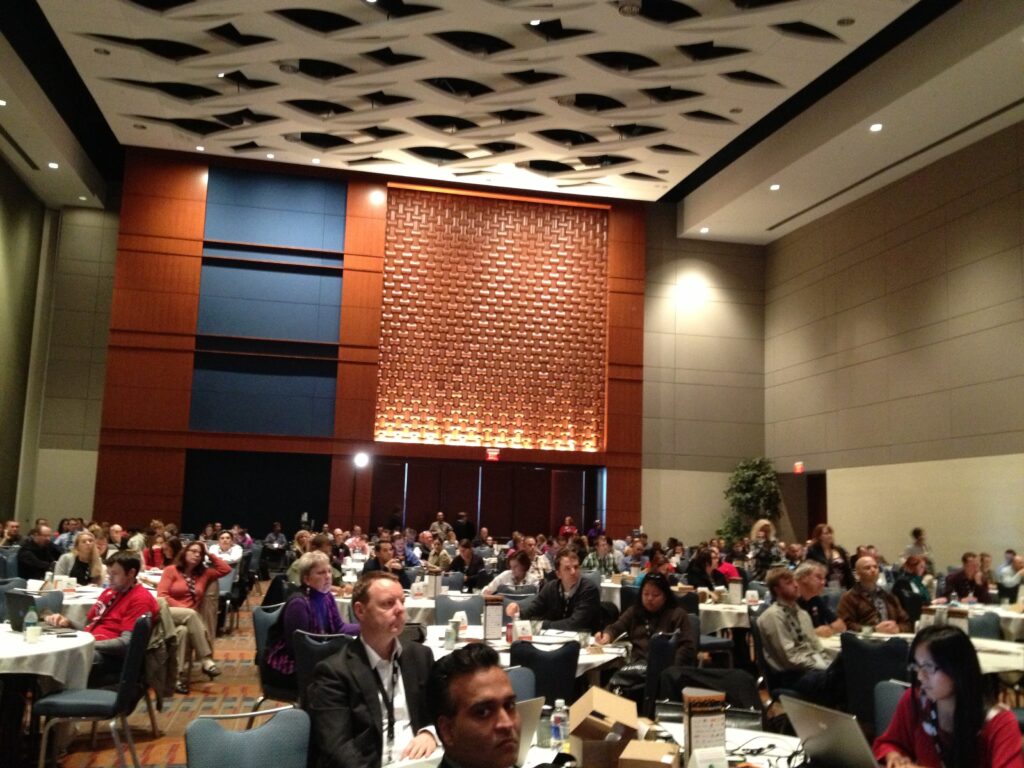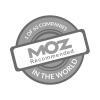
Search Engine Optimization in a “Post-SEO” World
Melanie Phung – Director of New Media, PBS
Search engines are in a constant battle against spam.]
Shift from just keywords and links to many signals. New SEOs must be sophisticated digital strategists, not just code monkeys.
SEO now must think about information and architecture. Need to know your analytics.
SEO and social media are overlapping more and more. SEOs must be working with the SM people.
SEO and technology: still the foundation of our content and marketing efforts.
Break Down the Silos!
- Build a virtual SEO team. Connect with the other people across the organization whose expertise and data you need, and vice versa.
- Get the team moving toward a common goal.
End to End SEO at PBS
Rolling out their own CMS. Integrate SEO into requirements gathering phase. Build SEO into the platform from the beginning. This is applicable to UX design as well. Make sure that as SEO you are able to input and review the whole process with SEO insights.
SEO and Analytics – Make sure your measuring the right things the right way.
SEO and Content Strategy
- Ensure your content efforts align with business goals
- Spend less time managing uselsss content to free up time and resoures for more effective marketing.
- Maximize inbound linking opportunities and shareability in all marketing efforts.
Data-Driven Personas for SEO

Michael King – Director of Inbound Marketing, iAcquire (presentation posted at SlideShare)
A persona is a hypothetical construct of a likely user of your site.
“A major virtue of personas is the establishment of empathy and understanding of the user of the product.”
Buyer vs. Audience Personas
You can also establish personas ad hoc by guessing, but this is a waste of time. Better to do it through social media keyword research, listening, analytics, etc. The problem with ad hoc personas: you get a different picture whenever you dip into the data.
So they have moved to data-driven personas. They use Nielsen Prism as their base. Gives a base data base you can work with. They add in data from Experian Simmons. Hitwise also has a lot of user data.
Could also use Google Consumer Surveys, but it guesses at demographic info. Better is SurveyMonkey and Yahoo Clues.
Share Types is personas from NY Times.
Choose best gues at Prizm types, then go through client’s customers and site, and develop a story for each persona based on the provided psychographics.
Then feed into Facebook or LinkedIn ad builders to confirm.
How to Use Personas
What are the need states behind a user search? Awareness – Familiarity – Consideration – Purchase – Loyalty. This is a consumer buying journey. They create content for each stage of the journey, with a full SEO strategy brief for each persona and each staged piece of content.
Linkbuilding and Prospecting
Use the info to prospect by social media profiles.
Keyword-level demographics: Put your site on OPen Graph for user signup, You get data to match with KW in search referrers.
Use the data for dynamic targeting.
Keyword arbitrage: ability to watch the journey of KWs for prediction of future experiences of those in same persona group.
What the Search Engines Want to See

Duane Forrester – Sr Product Manager, Bing
Social signals will continue to grow in influence everything in search.
SEO was kind of mystical, and the fast-movers usually won.
Now it’s and essential baseline, a prime tactic, and a long-term play.
How does it all stack up? SEO is baseline essential, but it is below Content, social, user experience, and link building in importance.
Social is very important, because it helps establish authority, especially topically.
What is SEO? It’s usability. It’s improving the product of your site.
Before you start…
- Set goals in dollars to everything you do
- This helps you pivot data around a metric that matters across your entire company
- Track revenue from organic traffic on subsets of KWs
- Track the costs of your work and show savings over time as past work pays future dividends
- Bottom line is you need to attribute a dollar figure to work
Social in Search
- 80% of people will wait to make a major purchase until they’ve talked to a friend.
- Essential to understand how social intersects with search
- Bing has a lot of partnerships with social sites that highlights authorities in the searched for topic
- Signal of topical authority. Your network tells the engines how authoritative you are in any topic.
6 Major Investment Areas for SEO
- Crawlability
- Site Structure
- On-Page
- Content
- Links
- Social
- Content is your reason
- KW research is your beacon
- Quality is your watch word
- Authority is your goal
- Niche is your starting point
- Social influence is your religion









